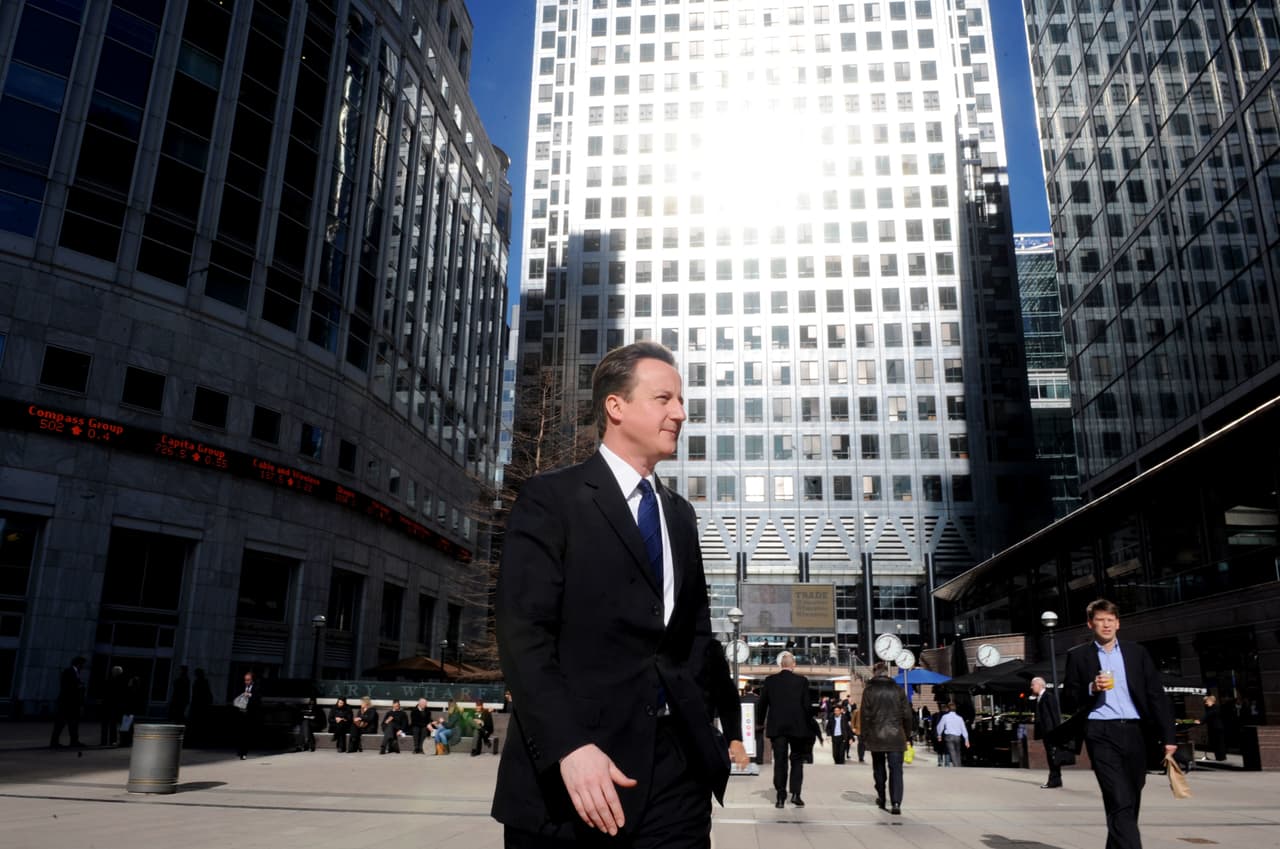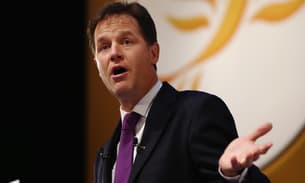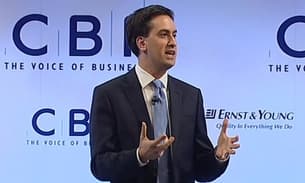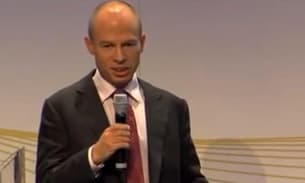
Hedge funds, financiers and private equity make up 27% of Tory funding
Conservative party PM David Cameron visits Canary Wharf
Hedge funds, financiers and private equity firms contributed more than a quarter of all donations to the Conservative party in the past year.
The latest research from the Bureau has mapped for the first time precisely which business sectors contributed to the Tories in the year ending June 30.
Our trawl of 450 separate donations given to Conservative Central Office by individuals, companies and limited liability partnerships reveals that 27%, or £3.3m, of the £12.18m donated to the party came from hedge funds, financiers and private equity firms.
The findings come amid growing concerns that some parts of the financial sector, termed ‘asset strippers’ or ‘predator financiers’ by some commentators, profit from financial instability.
The Bureau’s investigation, on the eve of the Tories annual conference in Manchester, shows the proportion of donations to the Conservatives from the entire financial services sector has now reached 51.4% – up 0.6% from last year. This means the City’s financial influence over the Tories has deepened in the past 12 months.
Our analysis also shows:
- Fifty City donors paid over £50,000 in the 12-month period covered by our study – which would gain them a face-to-face meeting with David Cameron as possible members of the Conservative party’s Leader’s Group.
- The hedge fund industry, the largest contributor across all business sectors, donated £1.38m (11.4%) to Central Office. Three individuals (Michael Farmer, Lord Stanley Fink and Andrew Law) contributed a combined total of £636,300.
- Financiers were the second-biggest group of Conservative Party donors from all business sectors, accounting for £1.3m. The top financier donor was David Rowland, who contributed £1.16m and is linked to Banque Havilland and hedge fund Blackfish Capital Management. Private equity financiers, such as Alexander Knaster and Edmund Truell, gave £565,400.
- Outside the City, the sector that donated the most to the Conservatives was industry, including manufacturing and defence. This sector contributed £913,411 (7.5%). The biggest donation from this sector was £300,000 and came from JCB Research.
Favourable treatment?
There is no suggestion that any donor has made personal appeals to introduce policies that would benefit them, or gained from their donation in any way. But the extent of the Square Mile’s bankrolling of the party will raise questions over whether the Conservative-led coalition may be treating its financial supporters favourably.
- A commitment to reduce corporation tax from 28% to 23% by April 2014 for companies whose annual profits exceed £1.5m.
- Exempting UK resident companies from corporation tax on all profits for their foreign branches.
- A reduced tax rate to 5.75% on the treasury functions of large corporations in tax havens.
- Reducing stamp duty tax for bulk purchases of residential property.
- Planning reforms that propose to create a presumption to approval for schemes that are considered ‘sustainable’.
- A firm commitment to oppose a Europe-wide financial transaction tax.
Dr. Stuart Wilks-Heeg, executive director of Democratic Audit, which monitors the state of democracy in the UK, said: ‘The coalition agreement included clear undertakings to take big money out of politics but there appears to be no sign of this happening. What this study tellingly reveals is the scale of the Conservative party’s reliance on a variety of City interests at a time when the Conservative-led government is attempting to kick banking reform into the long grass.’
Conservative party funding, like that of the Labour party, has seen a dramatic fall from last year, which covered a 10-month general election campaign. The Conservatives have seen a £21.94m fall in donations from the same period last year.
While the Conservative party is now reliant on the City for the bulk of its money, trade union funding now accounts for 91.3% of cash and non-cash donations to the Labour party’s central office, up from 59.9% in the year up to June 30 2010, according to the Electoral Commission.
As donations from the financial services sector to the Conservative party have risen, Labour’s support from companies and individuals has fallen sharply since Ed Miliband came to power. Between July 2001 and June 2010, private donations accounted for between 31.5% and 43.1% of party cash. Since July 2010, that figure has nose-dived to 6.6%.
Additional reporting by the Bureau’s political party funding team – Lucy Keating, David Pegg, Maeve McClenaghan and Emma Slater.




